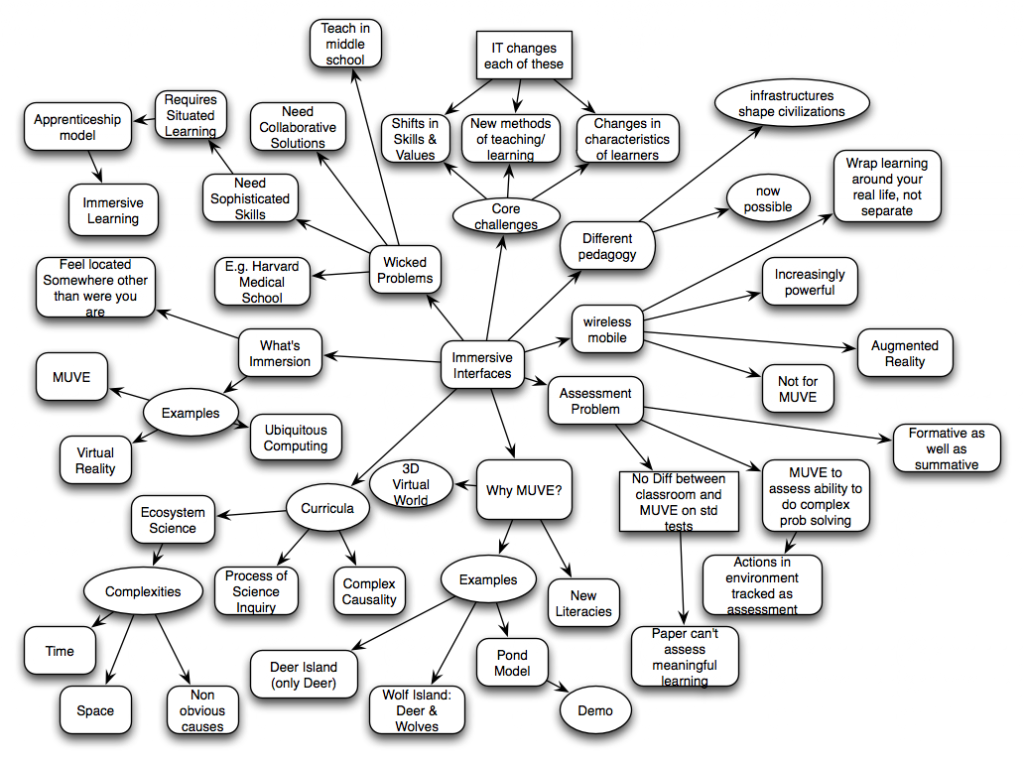Karl Kapp’s written another book, this time on gamification, and I certainly liked his previous book with Tony O’Driscoll on Virtual Worlds. This one’s got some great stuff in it too, and some other ideas that raise some hackles.
Let me get one of the quibbles out of the way at the start: I hate the title “The Gamification of Learning and Instruction” (to the point I previously wrote a post arguing instead for ‘engagification‘). Karl makes it clear that he’s not on the trivial notion of gamification: “Gamification is not Badges, Points, and Rewards”. My problem is that by just having the title, folks who don’t read the book will still point to it to justify doing the trivial stuff. I’d much rather he’d titled it something like “Beyond Gamification” or “Engagification” or “Serious Gamification” or something. He can’t be blamed for people misusing the term, and even his book, but I still fret about the possible consequences.
With that caveat, I think there is a lot to like here. Karl’s got the right perspective: “Serious games and gamification are both trying to solve a problem, motivate people, and promote learning using game-based thinking and techniques.” He does a good job of laying out the core ideas, such as:
“Games based on this complex subject matter work, not because they include all the complexities, but precisely because they reduce the complexity and use broad generalizations to represent reality. The player is involved in an abstraction of events, ideas, and reality.”
I liked his chapter 2, as it does a good job of exploring the elements of games (though it’s not quite as categorical as I’d like ;). He’s got pragmatic advices there, and lots of examples to help illustrate the possibilities. He goes beyond serious games in a number of ways, talking about adding motivation factors for other things than making good decisions. I worry somewhat that folks might (and do) use the same things to get people to do things that they might not otherwise believe are good to do, and the ethical issues aren’t addressed too much, but again that’s not Karl’s point, as his many examples clearly show.
Chapters 7-9 are, to me, the most valuable from my point of view; how do you do game design (the focus of Engaging Learning). Chapter 7 talks about Applying Gamification to Problem Solving and helps explain how serious games provide deep practice. Chapter 8 maps gamification on to different learning domains such as declarative, procedural, affective, and more. There are valuable hints and tips here for other areas as well as the ones I think are most important. And Chapter 9 provides valuable guidance about the design process itself.
I wish there was more discussion of how meaningful challenges for problem-solving will make fact based learning more relevant, rather than just gamifying it, but that’s not necessarily the role of this book. I very much like this statement, however: “The gamification of learning cannot be a random afterthought. It needs to be carefully planned, well designed, and undertaken with a careful balance of game, pedagogy, and simulation.” Exactly! You can’t just put instructional designers and game designers in the room together and expect good things to happen (look at all the bad examples of edutainment out there); you have to understand the alignment.
There are some interesting additional chapters. Guest authors come in and write on motivations and achievements (Blair), the gamer perspective (presumably son Kapp), a case study of a serious initiative in gaming (Sanchez), and alternate reality games (Olbrish). These provide valuable depth in a variety of ways; certainly Alicia Sanchez is walking the walk, and the alternate reality games that Koreen Olbrish are talking about have struck me as a really compelling opportunity.
There are flaws. I can’t comprehend how he can go from talking about objectives straight to talking about content. Games are not about content, they’re about context; putting the player into a place where they have to make the decision that they need to be able to make as an outcome. This statement really strikes me as wrong: “The goal of gamification is to take content that is typically presented as a lecture or an e-learning course and add game-based elements…”. Given my focus on ability, not content, this predictably irks me.
Karl also misses what I would consider are some important folks who probably should be referenced. While he did get Raph Koster and Jane McGonigal, he hasn’t cited Aldrich, Gee, Shaffer, Barab, Jenkins, Squire, Steinkuehler, or even Quinn (ok, I had to say it). It seems a bit narrow-focused to miss at least (the ‘other’ Clark) Aldrich, who’s written now 4 books on the topic. I mean, being an academic and all…. :)
Overall, I know he’s fighting for the right things, and think there’s some very broad and useful information in here. If you’re looking to make your learning designs more effective, this book will show you a lot of examples, give you some valuable frameworks, and provide many hints and tips.


